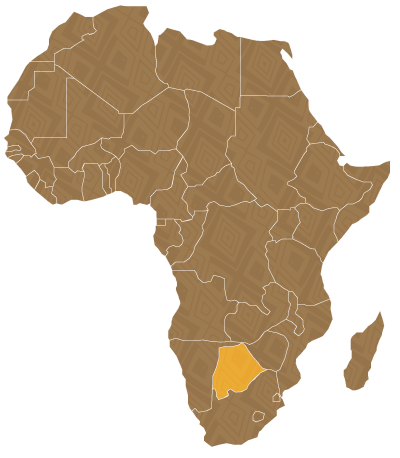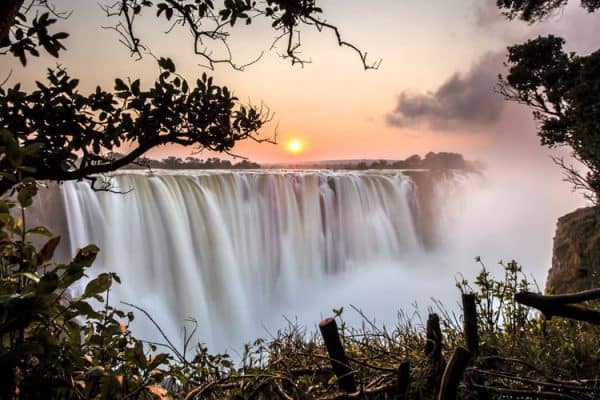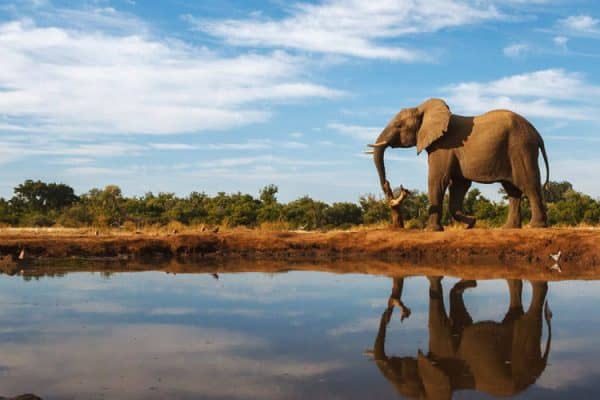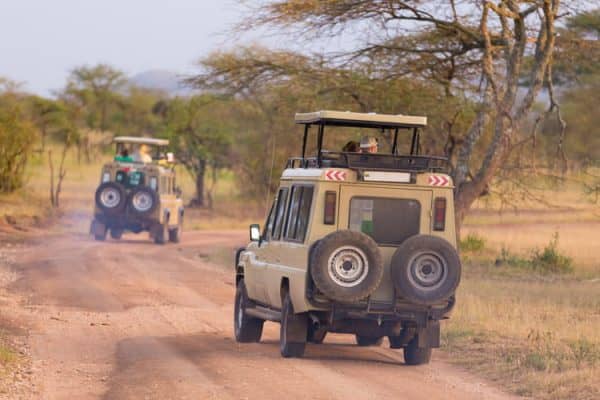Botswana Reisen
Einführung
Botswana ist vor allem für seine noch unberührte Natur und die ausgezeichneten Tierbeobachtungsmöglichkeiten bekannt, vom Massentourismus verschont gebliebene Schutzgebiete, erleben Sie spektakuläre Tierbeobachtungen und unternehmen in Begleitung ausgezeichneter Guides abwechslungsreiche Safaris per Fahrzeug, Boot, zu Fuß oder mit dem Mokoro. Eine Reise nach Botswana ist ein Fenster in das alte Afrika, wo Wildtiere durch die Straßen der Städte streifen und alte kulturelle Bräuche noch praktiziert werden. Da über 40 Prozent des Landes als geschützte Wildbeobachtungsgebiete ausgewiesen sind, ist Botswana wild, atemberaubend und garantiert voller Wildtiere. Die größten Attraktionen von individuellen Luxusreisen nach Botswana sind die reiche Tierwelt und die vielgestaltigen Landschaften – Safaris durch Wüsten, Steppen und Savannen gehören zu den faszinierendsten Erlebnissen unserer Zeit. Riesige Herden von Elefanten, Büffeln und Antilopen ziehen durch die Buschsavannen des Chobe-Nationalparks. Überdies kreuzen Löwen, Leoparden, Zebras und Giraffen Ihren Weg. Das tierreiche Flussdelta des Okavango ist Ziel anspruchsvoller Rundreisen.
Das Okavango Delta, das größte Binnendelta der Welt und Afrikas größte Feuchtgebietswildnis, ist das Kronjuwel jeder Safari und wimmelt das ganze Jahr über von Tieren. Für Naturbegeisterte und Safari-Liebhaber ist Botswana das perfekte Reiseland. Ein Großteil des Landes besteht aus der Kalahari-Wüste, wobei die Zentralkalahari die Heimat des alten San-Volkes ist, dessen Kultur die älteste der Welt ist.
Hauptstadt: Gaborone
- Bevölkerung: 2 Millionen
- Gesamtfläche: 582.000 Quadratkilometer
- Internationale Landesvorwahl:00267
Geografische Lage
Botswana liegt im südlichen Teil Afrikas. Es grenzt im Norden an Sambia, im Nordosten an Simbabwe, im Süden und Südosten an Südafrika und im Westen an Namibia.
Im Norden befindet sich das wunderschöne Okavango Delta mit dem Moremi Game Reserve und auch der berühmte Chobe Nationalpark. Im äußersten Südwesten liegt der Kgalagadi Transfrontier Nationalpark und in der Landesmitte das Central Kalahari Game Reserve. Ein Großteil des Landes wird von der Halbwüste Kalahari eingenommen. Bei weiteren Fragen zu unseren Botswana-Reisen stehen wir Ihnen gerne zur Verfügung.
Unterwegs in Botswana
Am besten und einfachsten lassen sich die Nationalparks im Norden Botswanas im Rahmen einer Fly In Safari besuchen. Flugsafaris sind von Maun sowie von Kasane aus möglich. Per Kleinflugzeug gelangen Sie zu abgelegenen Gegenden im Okavango Delta, dem Chobe Nationalpark und angrenzenden privaten Konzessionsgebieten.
Klima & beste Reisezeit
Botswana ist ein ganzjähriges Reiseziel. Während der Regenzeit im Sommer von November bis März verwandeln sich einige Wege in Schlammpisten, die schwer zu befahren sind. Die Temperaturen im Sommer erreichen bis zu 40 °C.
Die ideale Reisezeit für Tierbeobachtungen auf Botswana Rundreisen sind die Wintermonate von Mai bis Oktober. Die immer karger werdende Vegetation ermöglicht dann ideale Voraussetzungen für fantastische Safarierlebnisse. Jedoch herrschen speziell in der Kalahari starke Temperaturschwankungen.
Während es tagsüber bis zu 30°C warm wird, fällt das Thermometer nachts auf unter 10 °C.
Sprache
Religion
Zeitverschiebung
Stromversorgung
Einkaufstipps
Religion
Trinkgeld
Malaria
Impfempfehlungen
Generell kann man sagen, dass Botswana mit wenigen Ausnahmen keine anderen gesundheitlichen Risiken birgt als Reisen in andere Ferndestinationen. Impfungen wie Tetanus, Hepatitis A & B und Polio sind ratsam
Bitte beachten Sie auch die medizinischen Hinweise des Auswärtigen Amtes.
https://www.auswaertiges-amt.de/de/aussenpolitik/laender/botsuana-node/botsuanasicherheit/219522
Einreisebestimmungen
Die Visaanforderungen in Afrika ändern sich ständig. Bitte setzen Sie sich rechtzeitig mit uns in Verbindung, insbesondere wenn Sie eine außereuropäische Nationalität haben. Bitte stellen Sie sicher, dass Sie auf jeden Fall im Besitz eines gültigen Visums sind. Gate to Africa kann nicht verantwortlich gemacht werden, wenn Ihnen die Einreise in ein Land verweigert wird und Sie Ihre gebuchte Tour nicht wie geplant beginnen oder bis zum Ende durchführen können. Alle Kosten, die in diesem Fall auftreten, sind ausschließlich vom Reisenden selbst zu tragen.
Für die Einreise nach Botswana benötigen Sie einen Reisepass, der noch mindestens sechs Monate über die Ausreise hinaus gültig ist. Es müssen außerdem mindestens drei freie Seiten für Stempel/ Visa zur Verfügung stehen. Deutsche benötigen aktuell kein Visum für Botswana, sondern erhalten ein kostenloses Touristenvisum bei der Einreise.
Kinder benötigen einen eigenen Reisepass oder einen maschinenlesbaren Kinderpass mit Lichtbild. Eintragungen von Kindern in den elterlichen Reisepass sind nicht mehr möglich. Zudem müssen Sie bei der Einreise nach Botswana nachweisen können, dass Sie die Möglichkeit haben das Land wieder zu verlassen (idealerweise ein Rückflugticket).
Ein- sowie Durchreisebestimmungen für Minderjährige:
Die Einreisebestimmungen nach Südafrika, Namibia und Botswana haben sich für Minderjährige seit 2016 geändert.
Folgende Bestimmungen gelten für alle 3 Länder:
Wenn beide leiblichen Eltern mit einem Kind reisen, haben sie eine beglaubigte, internationale und ungekürzte Geburtsurkunde (in englischer Sprache) des Kindes aus der die personenbezogenen Angaben der Eltern und des Kindes hervorgehen, vorzulegen.
Reist ein Minderjähriger nur mit einem Elternteil, muss nachgewiesen werden, dass der nicht anwesende Elternteil mit der Reise einverstanden ist. In diesem Fall werden neben der beglaubigten, internationalen und ungekürzten Geburtsurkunde zudem eine Einverständniserklärung (in Form einer eidesstattlichen Erklärung auf Englisch), eine beglaubigte Passkopie sowie Kontaktdaten des nicht anwesenden Elternteils verlangt. Die eidesstattliche Erklärung muss vom Elternteil vor einem Notar unterschrieben werden, welcher das unterzeichnete Dokument notariell beglaubigt. Diese Erklärung darf bei der Einreise nach Südafrika nicht älter als 6 Monate alt sein.
Sollte ein Elternteil das alleinige Sorgerecht haben, wird der gerichtliche Beschluss über das alleinige Sorgerecht oder die Sterbeurkunde verlangt (in englischer Sprache). In diesem Fall wird eine beglaubigte, internationale und ungekürzte Geburtsurkunde ebenso verlangt.





